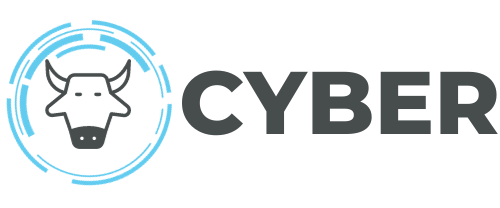Looking to break into the cybersecurity industry or advance your career? This comprehensive guide explores the top cybersecurity qualifications that offer the best value for money and learning experience. Whether you’re a newcomer or a seasoned professional, discover the qualifications that will help you succeed in the ever-evolving field of cybersecurity.
Introduction to Cybersecurity Qualifications
The importance of cybersecurity qualifications cannot be overstated. With cyber threats becoming more sophisticated and prevalent, organisations are in dire need of skilled professionals to protect their sensitive data and systems. A career in cybersecurity offers a challenging and rewarding path for individuals with a passion for technology and a desire to make a real impact in the digital world.
The cybersecurity industry is vast and encompasses a wide range of roles, including cyber security analyst, cyber security consultant, and cyber security engineer, among others. Professionals in this field are responsible for safeguarding digital assets, identifying vulnerabilities, and responding to security incidents. As the demand for cyber professionals continues to grow, obtaining the right qualifications is essential for both newcomers and seasoned professionals.
Top Cybersecurity Qualifications
For those looking to break into the cybersecurity industry, obtaining the right qualifications is crucial. Here are some gateway qualifications that offer the best value for money and learning experiences:
Certified Information Systems Security Professional (CISSP)
CISSP is a globally recognised certification that demonstrates a deep technical and managerial knowledge of cybersecurity principles. It is ideal for individuals with at least five years of work experience in the field and covers a wide range of topics, including security and risk management, asset security, and security architecture.
CompTIA Security+
CompTIA Security+ is a foundational certification that validates the baseline skills needed to perform core security functions and pursue an IT security career. It covers essential principles for network security and risk management and is an excellent starting point for individuals looking to enter the cybersecurity industry.
Certified Ethical Hacker (CEH)
CEH is a certification that equips individuals with the knowledge and tools to understand the mindset of a hacker and anticipate their moves. It is an ideal qualification for those interested in ethical hacking and penetration testing and provides a comprehensive understanding of the latest security threats and vulnerabilities.
Advanced Cybersecurity Qualifications for Professionals
For professionals looking to advance their careers in cybersecurity, pursuing advanced qualifications is essential. Here are some certifications that offer the best value for experienced individuals:
Certified Information Security Manager (CISM)
CISM is a certification that focuses on the management and governance aspects of information security. It is designed for individuals who manage, design, oversee, and assess an enterprise’s information security program and is highly sought after by employers looking for professionals with advanced skills in cybersecurity management.
Certified Information Systems Auditor (CISA)
CISA is a certification that validates an individual’s ability to assess an organisation’s IT and business systems and provide expertise in governance, risk, and control. It is ideal for professionals involved in auditing, control, and assurance and demonstrates a commitment to excellence in the field of information systems.
Certified Cloud Security Professional (CCSP)
CCSP is a certification that focuses on securing cloud environments and is ideal for professionals working with cloud technology. It covers key cloud security principles and best practices, making it a valuable qualification for individuals looking to specialise in cloud security.
Factors to Consider When Choosing a Cybersecurity Qualification
When choosing a cybersecurity qualification, several factors should be taken into consideration to ensure that it aligns with your career goals and provides the best value for money and learning experience. These factors include:
Industry recognition and credibility
It’s essential to choose qualifications that are widely recognised and respected within the cybersecurity industry. Look for certifications that are endorsed by reputable organisations and have a strong reputation among employers.
Cost and value for money
Consider the cost of obtaining the qualification and weigh it against the value it will add to your career. Look for certifications that offer a good return on investment and provide tangible benefits in terms of career advancement and earning potential.
Learning experience and support
Evaluate the learning experience offered by the certification program, including study materials, training resources, and support from instructors or mentors. A well-structured and supportive learning environment can significantly impact your success in obtaining the qualification.
TL;DR:
Cybersecurity qualifications play a pivotal role in shaping a successful career in the field of cybersecurity. For anyone wishing to advance in a cyber career, certifications such as CISSP, CompTIA Security+, and CEH provide a solid foundation, while advanced professionals can benefit from qualifications like CISM, CISA, and CCSP. When choosing a cybersecurity qualification, it’s crucial to consider factors such as industry recognition, cost, and learning experience to ensure that it aligns with your career aspirations.
Final tips for choosing the right qualification
- Research the job market and identify the qualifications that are in high demand.
- Consider your long-term career goals and choose qualifications that align with your aspirations.
- Seek advice from industry professionals and mentors to gain insights into the most valuable certifications.
- Take advantage of resources such as online forums, webinars, and networking events to stay informed about the latest trends and qualifications in cybersecurity.

